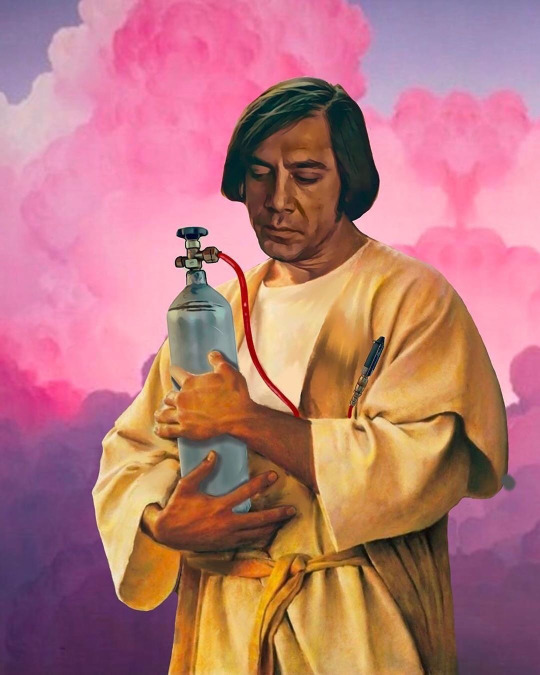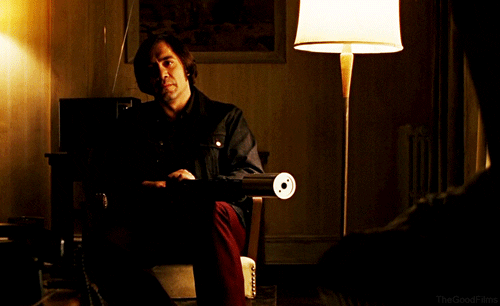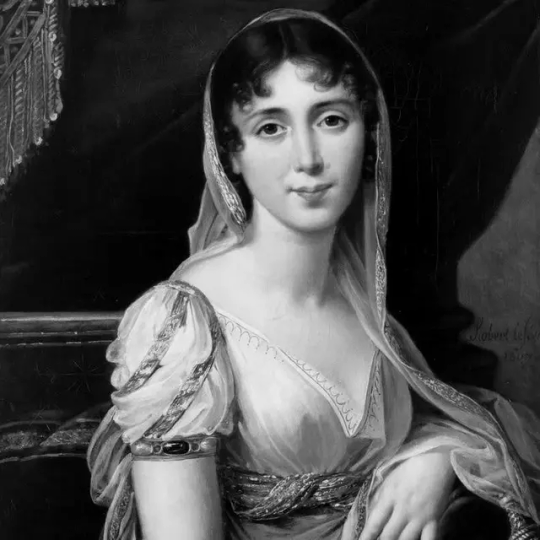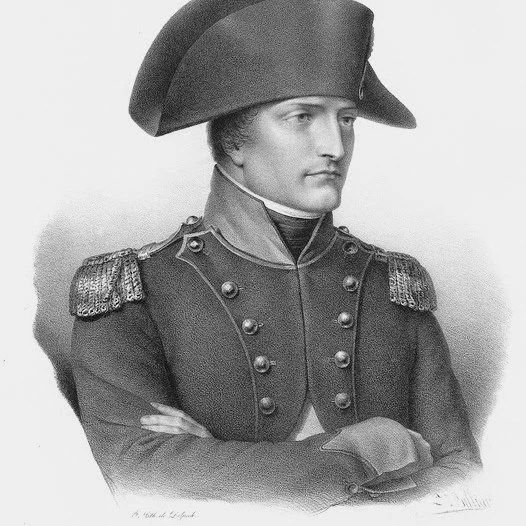#anti-Calvinistical
Text
Brazzers - Milfs Marica Hase & Luna Star Give A Lucky Dude The Wettest Massage Of His Life
Sierra facesitted by masseuse Lana
Blonde brazilian pornstar show on stage
Io mejor de issa Vegas
Kacie Castle and Fallon West Sextapes
Saucy Tranny Nicole Marques Trades Blowjobs with a Guy and Then Gets Fucked
casada se masturbando pra mim
Asian beauty gets clit stimulated by vibrator before cam
Mom Catches Step-Son Using a Fake Rubber Vagina - Rachael Cavalli -
Kyle Mason penetrates submissive Sheena Ryder from behind
#anti-Calvinistical#newsful#figurae#Longs#blue-backed#rosy-colored#brasilin#Feledy#Moiseiwitsch#recanted#quadrifurcation#chirognomic#romancy#denaturise#recount#elaborating#scabicide#biliteral#criminally#pre-encouragement
0 notes
Text
i have been made aware of some absolutely rancid takes, and frankly everyone should be proud of me for deciding no, i shan’t shit disturb, not today
a walnut will still be a walnut tomorrow
#salty peak sect 🧂#i am cleaning up my fish and reptile room so i can create MORE SPACE#for zebra skinks!! lizard puppies!!#i do not have time to handhold another shrieking calvinist through this novel today#but the good news is that the text says what it says no matter what the antis think
25 notes
·
View notes
Text
I love you Dutch “Bible Belt”. I love you shopping bans on Sundays. I love you wearing all black to church. I love you traditional clothes. I love you bibles translated to local dialects. I love you reform schools. I love you pro-lgbt reform Christian movements and orgs. I love you affordable farmers markets. I love you free food boxes outside gates. I love you reform women with like five kids. I love you leftist reform Christians. I love you reform women and girls wearing long skirts and long sleeves. I love you Calvinist influence in architecture. I love you long days lying under the sun and eating asparagus. I love you weddings interrupted by young children crying and giggling and running around.
I hate you urban Dutch leftists who use internal issues in the “Bible Belt” to be classist to us. I hate you urban Dutch Christian men who convert and then fetishise reform women from the Bible Belt. I hate you urban Dutch leftists who remove all autonomy from Dutch reform women and claim that they are all oppressed. I hate you urban Dutch leftists who pink-wash every issue in the Bible Belt to silence our voices. I HATE YOU URBAN DUTCH JOURNALISTS WHO COME TO OUR TOWNS TO TAKE PHOTOS OF US LIKE WE ARE ANIMALS.
#is there lots of issues in the so called Bible Belt? yes!#does that give you the right to treat us as literally sub human or otherwise animals to be gawked at? no!#and the thing is#we have to be their excuse#oh no the great progressive Netherlands can’t possibly be racist/queerphobic/Islamophobic ect.#obviously all the issues in The Netherlands can be attributed to the people who make up less then 5% of the fucking population#fucking upper middle class city folk need to believe that they are saving poorer rural folk#but we all see through your mask#people wonder why so few people from marginalised or poor communities vote for far left parties and it’s because the parties only consider#the interest of rich urban atheist/culturally Christian white people#you actually fucking hate us!!#I’ll tell someone that there are actually huge efforts within the Bible Belt to crack down on issues of racism#queerphobia and anti-feminist beliefs and they’ll be like#“oh that must be happening on a super small scale then#NO DICKWAD YOU JUST HAVE NEVER BEEN OUTSIDE THE FUCKING UTRECHT METROPOLITAN REGION#you leave Utrecht centraal and think your in the ghetto#urban Dutch leftists talk so confidently us down here in Gelderland Zeeland and Overijssel but I’m going to be so fr you don’t know ANYTHING#dutch#Nederland#Netherlands#bible belt#socialist#socialistisch#socialisme#Dutch politics#Christian#Christianblr#Calvinist
3 notes
·
View notes
Note
‘Neo-Calvinist’ with a nose the size of a fucking shipping freighter. We know what you are, (((reptile.)))
When the Tumblr anons find out I'm a secretly not a Goy...

#Be honest... you don't even know what a Neo-Calvinist is... do you?#This is a first though... never been called a Jew before#Anti-semitic many times but never a Jew
12 notes
·
View notes
Text
saw this post a little while back talking about all the unreasonable things someone had seen people say to make different fanfic tropes problematic. nd obviously all the examples given were very virtue signal-y illogical stuff but then they went "and even the wholesome stuff got cancelled!" and had this as an example:

which. uh. hey. king. queen. legend. a soulmate au is like. the Definition of amatonormativity. the idea that you have a single person out there who will complete you in a romantic means is not only exactly the kind of thing that amatonormativity describes but it's amatonormativity taken to a whole other level. that's compulsory romance babe.
like i get that their point is "aro people are complaining about nothing" which. yeah. hi. eat shit and die whatever whatever but it's also soooo stupid to put this down as a "look what these sjws were saying!!" example because you're just listing a term that accurately describes the trope in question. to say that it's amatonormative is a) not inherently a complaint, it's a perfectly valid observation and b) a very valid complaint. seeing the rhetoric of "everyone belongs with a single predestined romantic partner" when you're aro is both hurtful and alienating. nobody's saying you can't write soulmate aus. they're just expressing how the popularity of that narrative convention affects them.
also LOVE the reported complaint of "supports predestination". some REALLY angry anti-calvinists in the comments section of soulmate fics. "how DARE you suggest that god decides your ultimate fate before it happens." absolutely hilarious.
#anyway if you don't care about what aro people contribute to fandom spaces just say that and go#you're gonna look me in the eyes and tell me that someone saying 'i don't like this because of reasons personal to me' is a weird complaint#you're gonna look me in the eyes and say that you were what. attacked over this? by the mean nasty anti soulmate people? girl...#tell me you don't know what terms mean without telling me you don't know ig#soulmate aus are a reflection of larger societal ideals that are—guess what—still not really compatible with aromantic people#aro people have a right to be angry about amatonormativity anyway. and it has literally nothing to do with you.#take a breather go write your fuckin soulmate fic if you want to. i get it! it can be cute! but girl let people fucking live#notes on that post were nasty as fuck too dfjgksh all these 'wow antis are sooo stupid!' comments like.#antis? you mean the people who don't like incest? that's who you wanna dunk on? go off i guess#totally irrelevant. support aromantic people.#and don't be calvinist ig. or do?? op is pro-predetermination apparently so. take that as you will haha#aromantic#aro#aromantism#aroace#putting my little aro tags on things for funzies bc i love being aro <3
12 notes
·
View notes
Text
Muslim boys fucking gay porn xxx Their boners are firm and their
Cat girl
Group Sex With Two Busty Twin Sisters
Para esposas de cornos
Teen boys caught nude on webcam and of young gay Ever since he
Yielding teen in fine scenes of extreme bondage
Sexy blonde pillow/duvet humping
Solo handjob cumshot compilation
Nubian tranny fingering her ass in closeup
Alexis Silver show her boobs outside and get his dick inside
#orangite#Karameh#blustered#Dendrogaea#neutrality#postbiblical#sprew#overimpressibly#feather-work#tsubaki#noncreditor#redesignated#milieus#unapprovable#stolonlike#septated#Anti-calvinistic#soul-cloying#traduction#bullfist
0 notes
Text
This refusal to mask to protect lives reminds me of how that one old timey surgeon was like "hey I noticed that mortality rates go down when I wash my hands between handling corpses and delivering babies, maybe try it?" And he got treated viciously and shunned by the entire medical field because "a gentleman's hands are always clean" like by default so they shouldn't have to wash them.
And just this obvious but often unspoken idea that contagion can never be spread (and definitely not seriously suffered) by someone who thinks of themself as like inherently "pure" and how these ideas link up with white supremacist and ableist/eugenicist concepts of who is "dirty" and who is considered pure/clean by default even without cleaning themselves (and how Calvinist predestination never really left us and people think they're "good" because of their own special essence rather than what they DO) and like who generally gets blamed for widespread contagion and how those who are ill long term are suspect and are either fakers/exaggerating/"using it as an excuse" or deserve to suffer somehow or both and how all this cognitive baggage makes it possible to see thousands dead every week and decide that's not a big deal
Which is a lot of why anti masking started with christofascist white supremacists!!
7K notes
·
View notes
Text
So being in both the she Ra and tLT fandoms I definitely see a lot of posts about religious trauma. Which, fair. But Tasmin (Edit: Tasmyn whoa I am dumb) Muir is a practicing Catholic and Nate Stevenson is an atheist who was raised Calvinist. And in addition to tLT being arguably more in the tradition of Very Gay, very subversive Catholic art rather than a more straightforward account of trauma written by someone now 'on the outside' there is also the theological specificity to think about.
She Ra isn't just about the psychological harms of Christianity or Evangelicalism but -Calvinism specifically-. This is true of a lot of Nate's work. The rejection of total depravity in Catra's redemption of herself, of a 'good' elect and 'bad' damned in the shows consistent ambiguities/humanization of everyone, and the shows rejection of (pre)destiny in Adora and Catra's arcs are extremely anti Calvinist. And of course Horde Prime claims to be a Calvinist God (but he isn't, this acting as a proxy for the -people- who claim their abuses and oppressions are the will of God - there is no actual deity on Nate's universe, only people).
But I have no idea what is going on, religiously, in the Locked Tomb. However I suspect that while Nate, raised Calvinist, is interested in the terror of damnation, Tasmin (EDIT: Tasmyn) Muir might be exploring much more ambivalent Catholic ideas of Purgation and of course, the Harrowing of Hell. TBH while I adore Nate's cartoon theological critique I am hoping Muir gives us some Man Who Was Thursday theological what the fuckery.
Note: if you want to read more about Catra and Calvinism here is one of the most batshit posts I have written on this website. (Note this was written before Nate transitioned to Nate so it uses his former name and both genders of pronouns since that was his preference at time of writing). I treat my old posts like articles so I don't keep them continuously up to date but linking to anything that doesn't say Nate still feels odd.
#the locked tomb#harrow the ninth spoilers#nona the ninth spoilers#john gaius#she ra spop#spop#nate stevenson#tasmin Muir
831 notes
·
View notes
Text

Illustration by @steve_fagiano_art
“Chigurh stands up to God with an unflinching, uncompromising belief in predetermination—no free will or human choice, no mercy or sentiment, no giving in or letting go or giving up. Principled in the purity of his work, he defies sentiment and falsehood and betrayal. A pure born-again agent of death, anti-Christ Calvinist Chigurh is a man of his deadly word, a relentless avenger, an implacable killer defying God, no less than the diabolic Judge in Blood Meridian. "How to prevail over that which you refuse to acknowledge the existence of" lago was never so clear-minded, Ahab no more manically fixated, Kurtz no less obsessed with his mission to exterminate losers. "The horror! The horror!" What more can a man say of pure evil?” - Kenneth Lincoln, ‘Cormac McCarthy: American Canticles’ (2010) [p. 144, 145]

“Chigurh again adopts the Socratic method in his final encounter with his fellow hitman Carson Wells. Although Wells isn't given the privilege of a coin toss, Chigurh nevertheless engages in an incisive dialogue with his victim. While holding Wells at gunpoint, Chigurh asks, "If the rule you followed led you to this of what use was the rule?" When Wells replies, "I don't know what you're talking about," Chigurh elaborates: "I'm talking about your life. In which now everything can be seen at once." Knowing that the moment of death has arrived, Chigurh wants Wells to examine the path that led him here, claiming that the present situation "calls past events into question" (175). Even though Chigurh admits that he and Wells are in the "same line of work," he finds it necessary to distance himself from the other hit-man: "You think I'm like you. That it's just greed. But I'm not like you. I live a simple life" (177). This distinction between the two hired assassins suggests that Chigurh transcends mere criminality. The "simple life" he leads imbues him with the ascetic austerity of a monk pledged to evil, a satanic reversal of traditional, spiritual roles hinted at by other descriptions of Chigurh as a "faith healer" and a "prophet of destruction" (7, 3). In his study of the portrayal of evil in literature and cinema, Paul Oppenheimer points out that evil often "begins in criminality" but then "surpasses criminality, and finally, by comparison with criminality, overwhelms and belittles it, causing it to seem oddly cumbersome and even childish" (21). Chigurh lives by a different "rule," not motivated by the usual spectrum of human desires and thus remaining largely inscrutable.
It is significant that Wells is given a premonition of his own death exactly three days before it takes place. While examining the damage caused by a shootout between Chigurh and Moss at the Eagle Pass motel, Wells notices "two bulletholes in the windowglass" of a "second floor level" apartment across the street. After knocking on the door and receiving no answer, Wells lets himself in and finds the corpse of an old woman: "She'd been shot through the forehead and had tilted forward leaving part of the back of her skull and a good bit of dried brainmatter stuck to the slat of the rocker behind her. . . . A second shot had marked a date on a calendar on the wall behind her that was three days hence" (147). The path of the stray bullet converges with the path of the unsuspecting woman, much as Chigurh's coin converges with the equally unsuspecting gas station owner earlier in the novel. The woman's death reminds Wells of the inexorable machinations of fate: "Not what you had in mind at all, was it darling?" he asks (148). Wells correctly interprets the mark on the calendar as a portent of the day of his own impending death.
During the final encounter, he tells Chigurh, "By the old woman's calendar I've got three more minutes. Well the hell with it. I think I saw all this coming a long time ago. Almost like a dream. Déja vu." Well's words reveal that he had a vision of his own death long before he saw the calendar. Nevertheless, the question posed by Chigurh, namely, "How did you let yourself get in this situation?" suggest that it was still within Wells's power to make different choices, live by a different "rule," and thereby change his fate. Chigurh encourages Wells to engage in a final moment of self-reflection: "I thought you might want to explain yourself. . . . Not to me. To yourself" (178). Chigurh's questions seem to be directing Wells toward something akin to the existentialist concept of authentic existence, which, though "not clearly defined by the existentialists . . . implies an attitude of sincerity and honesty and the absence of self-deception" (de Silva 1). Furthermore, it is a mode of existence based on "a realization that one is what one makes oneself by one's acts" (Manser 20). It is worth mentioning that Sheriff Bell strives for the same realization: "It's a life's work to see yourself for what you really are and even then you might be wrong. And that is somethin I dont want to be wrong about" (295). Despite the fact that Bell and Chigurh are diametrically opposed in a Manichean battle between good and evil, respectively, both men insist on the importance of authentic existence arrived at through knowledge of the self.
Existentialist themes are also apparent in Chigurh's attempts to make his victims come to terms with the inevitability of death. He accuses Wells of believing that he can keep death at bay: "You think that as long as you keep looking at me you can put it off." Wells denies thinking such a thing, but Chigurh insists, "Yes you do. You should admit your situation. There would be more dignity in it. I'm trying to help you" (176). Behind the "existential preoccupation with the theme of death" is the belief that "living authentically is living constantly in its presence, for then alone can we attain 'freedom in the face of death" (Dutt 80). When Wells accuses Chigurh of thinking that he is "outside of everything" and reminds him that he is "not outside of death," Chigurh replies, "It doesnt mean to me what it does to you" (177). The reply can be read in two ways, the surface reading being that Chigurh has adopted an existentialist approach to death. More subtly, however, the words hint at the idea that Chigurh is no ordinary mortal and may perhaps be Death itself, albeit a modern version that carries a pneumatic stun-bolt gun instead of the traditional scythe.
Wells grows weary of the conversation, announcing, "I'm not interested in your opinions. . . . Just do it. You goddamned psychopath. Do it and goddamn you to hell." Despite the verbal command, Wells's body language suggests that he is not quite ready: "He closed his eyes and he turned his head and he raised one hand to fend away what could not be fended away. Chigurh shot him in the face" (177). Although there is some discrepancy between Wells's words and his reaction to the shot, the fact that Wells commands it enables him to reclaim a certain degree of control over his fate, however insignificant it may appear. Furthermore, McCarthy makes a point of informing the reader that the "new day was still a minute away" (178), thereby emphasizing the fact that the old woman's calendar was not entirely accurate. The fact that, by asking Chigurh to shoot him a minute early, Wells refuses to die on the prophesied day suggests that even within a universe ruled by seemingly inexorable forces of fate, minute degrees of free will and personal agency remain.” - Petra Mundik, ‘A Bloody and Barbarous God: The Metaphysics of Cormac McCarthy’ (2016) [p. 268 - 270]
“The Coen brothers built a story of war between two teams: one team represent the human mind wish to understand the world and the second team represent the universe as a chaos. During the first half of the movie the war looks good for the human mind team but then the human mind team lose – a beatiful metaphor for absurdism.
(…)
Result of the war:
Anton kills Carson, Llewelyn is killed by Mexicans, and the sheriff is retired loosing hope in the world.
The Coen brothers message in this film is that they do not think humans mind will ever be able to understand the world and we are doom to internal ignorance. Depressing.”
#no country for old men#anton chigurh#chigurh#cormac mccarthy#existentialism#absurdism#socratic method#coen brothers
70 notes
·
View notes
Note
Re: m/m vs everything else
My fandom has an oddly high number of straight women, and the most popular ship is m/m and the second is m/f. I always attributed it to these women not understanding what it means to be attracted to another woman, but they do understand attraction to men. Hence, writing men attracted to each other.
That's obviously a generalization, but it seems to fit with the pattern I've encountered.
(And there's definitely a correlation between women writing m/m and internalized misogyny, but that's a whole other discussion.)
--
LOL.
Do you know how many times some smug little twit has said these things to me? They were nonsense in the 90s and they're nonsense now.
How do you know those fans are straight women?
How do you know what the average in other fandoms is such that you know the number is higher?
No, there is no correlation.
And, in fact, it's not a whole other discussion. It's the same "Only I am a good fan, unlike those girls" crap you're peddling in this post.
Not liking f/f because you want to fuck men and not women is not a matter of not understanding. I think plenty of people who are not attracted to women understand fine. Hell, I know straight women who like female-centric porn, including f/f, because it shows a body like theirs having fun.
It's a matter of writing what is hot to oneself. People write what is fun for them. It's no deeper than that.
Maybe you don't see the distinction, but I do. The way you phrased it downplays the centrality and positiveness of HORNY as a reason for art. Too often, these intellectual explanations sound like they're written by people who don't understand what lust even is.
If you do want a deeper reason, women, including the most cishet woman ever, are made by culture to feel uncomfortable in their own skins. Insisting that women write female characters is saying they can't even daydream about another scenario. They should be shackled to their physical body at all times. Would we say this to a trans person? Your physical body defines you?
Oh, patriarchal society scarred you? Oh, you don't like doing 90% of the work to figure out how to write female characters when media didn't teach you and the media you enjoy has few great ones? Well, just get over it. Doesn't matter what you enjoy. Your art is for the benefit of others, not for enjoyment.
It's some Calvinist anti-pleasure, anti-leisure crap.
It's also some radfem "prioritize women always" bullshit.
--
Someone has internalized shitty views here, but it's not those writers.
271 notes
·
View notes
Text
When you think about it the entirety of Hazbin’s premise is anti-Calvinist.
Specifically it seems the leaders of Heaven are big on predestination.
Predestination is essentially the belief that a soul is destined for heaven or hell the second they are born, and there is no changing it whatsoever.
And especially considering that it seems Sera had little idea on what actually makes someone good enough to go to heaven to begin with, it kinda seems…I don’t think arbitrary is quite the word, because there are obviously bad people in hell, it isn’t like everyone there is some shade of morally grey, obviously, but…perhaps “goodness” and “badness” aren’t as clear cut as some people like to imagine, is all I’m gonna say.
There are good people in hell, same as there are bad people in heaven.
And I highly doubt God in this universe will ever even be talked about, much less shown. So it isn’t like Charlie is gonna ask Him about it.
But Jesus perhaps…hmmm.
(That would be fucking nuts, can you imagine the conservative backlash if Jesus was in the show? The people at the daily wire would have an aneurysm)
Yeah I don’t know how to end this post I just have thoughts.
If hell is forever then heaven must be a lie
If angels can do whatever and remain in the sky
The rules are shades of grey when you don’t do what you say
When you make the wretched suffer just to kill them again.
21 notes
·
View notes
Note
Don't know much about papal history so was wondering "What if" at 1550 papal conclave Englishman and cousin to the Tudors Reginald Pole had won which in real life he nearly did? He seems to be not completely fairly viewed as conservative because he opposed the Act of Supremacy and his own life outside of the Tudors gets overshadowed.
I don't particularly know much about Reginald de la Pole's intra-Catholic religious politics (where did he stand on the Counter-Reformation? Was he an arch-traditionalist or more of an Erasmian reformer?) but I think he's generally viewed as someone with strong Catholic beliefs, given his position on the King's Great Matter let alone the Act of Supremacy.

To be honest, I think the main impact of de la Pole being elected Pope would be the rapid acceleration and intensification of English Anti-Catholicism.
If the Bishop of Rome is not merely attempting to assert a foreign jurisdiction in England, but is a Yorkist Pretender to the throne seeking to bring down England's Josiah, things are going to get very dicey very suddenly because now being an open Catholic or having Catholic sympathies is going to be seen as high treason pure and simple. In this timeline, exclusion from the succession is not going to be enough for Mary, and she will probably go down in history as a willing martyr for the True Religion.
With Queen Jane I and King John II jure uxoris leading the charge after Edward's death, there will be no room for the more Catholic-friendly elements of the Elizabethan religious settlement - England is going to go full Calvinist along with Scotland, the Netherlands, and the Huguenots. In fact, England is going to get stuck into the French Wars of Religion and try to detach as much of coastal France as it can in the name of Reformed Religion.
18 notes
·
View notes
Note
What's your opinion on the fandom's obsession with Smeyers mormonism? I'd just recently discovered your metas(and they're so interesting btw they brilliantly expand upon the almost kinda psychological horror esque feel of the characters and story). But then I go into your replies and tags expecting everyone to marvel at your genius exploration of what's eluded to in the canon text or just the likelihood or natural outcomes of certain scenarios and decisions that have/may have not happened in the context of the overall story. Instead it's most of the time just a bunch of people going, "Aha. Confirmed it! That's so because Meyers a Mormon" or "See, that insert literally anything happened because of the Mormom themes, characterizations and ...idolization??? of insert literally any character/aspect of the lore. "
It would be a lie to say it isn't irritating even speaking as an atheist because it literally stifles any actual exploration of nuance within the books. Any theory, character analysis, or legitimate in/out of universe explanation in regard to canon can be boiled down to such an archaic supposition. And it's not just your blog. I see it everywhere here on tumblr when discussing anything twilight. Even people indifferent to twilight and twilight antis alike are of such strong conviction that they erase any character's belief or motivation or really anything Meyer has said in regards to that matter
Seeing as I'm running a doylism purist blog I obviously agree with you. The author's religious belief are a non-issue to me when I read Meyer's works, or anyone else's for that matter.
I say that, but there are exceptions - there's something strikingly Calvinist permeating the world of Harry Potter in that people are born good or bad and the juxtaposition between Tom Riddle and Harry Potter seems to boil down to Tom being a bad person who will make bad choices while Harry is a good person who will make good choices, and this extends to the rest of the cast and the Hogwarts houses as well. However, these are children's books with Good Guys and Bad Guys and I won't pretend to understand what's happening in JKR's brain, and so you won't see me saying that Harry Potter is Calvinist: merely that there are parallels that can be drawn.
Similarly, taking a step outside the YA genre I find that Victor Hugo's own political and religious personal journeys are reflected in Jean Valjean and Marius Pontmercy, but while it adds to the reading experience it doesn't make me see the characters any differently. They stand on their own.
I bring up these examples for a reason - sometimes, no matter how Doylist you want to be, you read a book and you can tell that, "oh this is an allegory for apartheid", or "I can tell the author is writing about personal experiences with trauma" or the plain old "you know, this feels like the author was projecting a lot" (frequently found on Ao3).
Twilight, for me, is not one such work. My thoughts on Mormonism and Twilight are summed up here, but one point I feel I should make is that although Twilight never read as Mormon to me, I also straight up know very little about Mormonism, so who knows, maybe I would be picking things up if I was more into it. As it is, however, the analyses of Mormonism in Meyer I've seen have been consistently reductive and superficial, where things like "Carlisle is a young blond leader -> Joseph Smith, the Cullens are a perfect family -> they're mormons, nobody in this YA series drinks alcohol -> they're mormons" are presented as compelling evidence, so I've yet to be convinced of it.
To actually answer your question though, I would just block "Mormonism", "LDS", and "Joseph Smith" on tumblr saviour and smile blissfully at my Mormon free dash. In fact I would do that anyway, regardless of what the Twilight fandom is posting.
#twilight#twilight renaissance#twilight fandom#twilight religion#stephenie meyer#harry potter#harry potter religion#harry potter meta
37 notes
·
View notes
Note
Hello, please forgive me if this ask is uncalled for, I just figured you would be a good person to ask. What exactly in theory do people in communist circles here mean when they besmirch 'idealists'? I find myself agreeing wholeheartedly with most theroy I've read and generally align with most leftist beliefs. But I would still consider myself an idealist because at my core I believe everything I do because I believe in working towards an ideal world. It makes me a bit sad to see the term used so harshly. I do believe that material conditions matter more than ideals , but I still think my beliefs are based on ideals at their core, am I misattributing the label? Misunderstanding something? Thank you for taking the time to read this if you did, I don't want to use you as my personal tutor or anything, I just want to understand something and wasn't sure who to turn to. Have a nice day.
I'm going to share an extended excerpt from Philosophy and Class Struggle by an anonymous South African theoretician who went by the pen name "Dialego". The whole thing is a very good read and not super long, and while naturally it focuses most on the South African liberation struggle of the 1970s it communicates a lot of guidelines and principles that are useful for any modern revolutionary movement. In any case the below excerpt is taken from the second chapter What Is Dialectical Materialism? and I think it answers your question most thoroughly:
It is sometimes thought that a “materialist” is a person who simply looks after his own selfish interests whereas an “idealist” is one who is prepared to sacrifice for a worthwhile cause. Yet, if this were so, it would be the conservatives of this world who are the “materialists” and the revolutionaries who are moved by “idealism"!
In fact, of course, “materialism” and “idealism” do not refer to vague moral attitudes of this kind. They are terms used in philosophy to describe the only two basic interpretations of the world which can be consistently held.
Everyone who studies the world around him has to find the origin of things. What causes things to move, or to act or to behave in the way they do? Are the forces spiritual in origin or are they produced by the material world?
Some years ago a Calvinist minister ascribed earth tremors in the western Cape to the growing disquiet of the Almighty towards modern forms of music and dress! Whereas a materialist seeks to explain the world of society and nature according to the material conditions and processes at work, the idealist believes that events take place because of the existence of spiritual forces or “ideas”.
An idealist might argue that apartheid in South Africa has been brought about by the “ill-will” or “evil intentions” of white people who don’t wish to face up to reality. For a materialist, on the other hand, this “ill-will” or “evil intention” still needs to be explained, and the real reason for apartheid is not to be found in people’s heads but in their pockets, in that material system of capitalist exploitation which makes apartheid highly profitable for financial investors, factory owners and the giant farms. It is here that the roots of the system lie.
We often talk about the way in which for example “anti-communist ideas” weaken our movement by creating divisions in its ranks and this of course is true. But we must never forget that these anti-communist “ideas” don’t simply fall from the skies: they reflect and arise out of the material interests of monopoly capitalism and unless they are firmly rebuffed, they are likely to make an impact on those whose stake in society, however small, makes them vulnerable to anti-communist scare-mongering
Thus we can say that whereas idealism looks for an explanation of
the world in terms of the “ideas”, “intentions” or “will” of people, materialism considers that the source of all events and actions is to be found in material causes or, as they are sometimes called, “the laws of nature.”
It is true that cruder forms of idealism ascribe things in the world to the “will of God” whereas more subtle forms of idealism put the cause down to the ideas which exist in the heads of individuals on earth, but in neither case do idealists seek an explanation in material reality.
Whereas idealism believes that the ideas in people’s heads exist outside of and independently of the world of matter, materialism contends that people’s ideas, like all other aspects of their behaviour, are the product of material causes and can only be properly understood when these causes are discovered.
Materialists in fact argue that man was neither created by God nor is his origin a sheer mystery. He developed out of the world of nature through a long process of evolution and his ideas are the product of the mental activity of his brain, itself a highly developed and complex form of matter.
This does not mean that materialists are not concerned about people’s ideas. On the contrary, materialists are the only people in the world who are able to explain them properly. What materialism rejects are not ideas, or their immense importance in influencing the course of events. Rather it is the idealist theory of ideas which materialists challenge, because this treats ideas as mystical forces that somehow exist independently of material reality.
9 notes
·
View notes
Note
Listen, about your post about Calvinism, I had a (former) friend visit me for a week (we live in different countries) and I HATED how sure he was that there are “select few” who can go to heaven and everyone else cant ever be saved. Like? I feel like that’s so against the Bible? He also hated that I was catholic so there’s that
Yeah it’s hard to find reformed people who aren’t also massively anti Catholic in my experience.
I don’t wanna speak for calvinism but in my experience it just leads people to hating everyone that isn’t calvinist or at least protestant because to them God also hates unsaved people so they feel morally justified in doing so. They are quick to damn to hell, when eternal judgement is Gods prerogative
#sorry to any calvinist followers#you’re allowed to defend your faith on this post#I just have a hard time with calvinists who are constantly hateful and tell others they’re going to hell
10 notes
·
View notes
Text





Aug. 17, 1798 - Jean-Baptiste Bernadotte and Désirée Clary got married in Sceaux.
Except for his relationship with Cathérine Lamour, not much is known about Jean-Baptiste’s previous relationship history but in the military his nickname was ‘Belle-Jambe’ (‘beautiful leg’) which is said to have been a hint to “his ability to appeal to the opposite sex”.
When it comes to Désirée we have more knowledge about her history. For example, we know that she had previously been engaged to Joseph Bonaparte. The two got to know each other after he found her sleeping in a waiting room and then walked her home. Through Joseph, Désirée got to know his younger brother Napoleon who took a liking to her and suggested that she should be engaged to him instead, and Joseph to her sister Julie. Something everyone involved thought was a good idea.
Julie Clary and Joseph Bonaparte went on to get married the same year whilst the next year, in 1795, Napoleon ended the engagement with Désirée. In 1797 Désirée moved with her sister and her husband to Rome where Joseph was ambassador. There she became betrothed to Mathurin-Léonard Duphot, a French general. The betrothal was more or less arranged by Napoleon and Désirée herself is said to not have been enthusiastic about the plans. However, two days before the intended wedding, an anti-French riot broke out in Rome and Duphot was killed in the unrest. Later in her life, Désirée vehemently denied that the engagement to Duphot ever happened.
Back in Paris, she got to know the French general Jean-Baptiste Bernadotte. He is said to have given her the nickname “Bonette” and liking arose between the two. They soon became engaged with the wedding taking place later the same year. Since he was a Calvinist and she an atheist, the wedding ceremony was a civil one and not religious.
Photo 1: Portrait of Désirée Clary by Robert Lefèvre, oil on canvas, dated 1807.
Photo 2: Jean-Baptiste Bernadotte in 1797, from the collections of the National Library of Norway.
Photo 3: Portrait of Julie Clary with her daughter Zénaïde Bonaparte by Robert Lefèvre (oil on canvas, 216 cm x 143 cm) dated 1807.
Photo 4: Portrait of Joseph Bonaparte by Jean-Baptiste Wicar (oil on canvas, 230 cm x 176 cm) dated 1808.
Photo 5: Napoleon Bonaparte, Premier Consul. By François Séraphin Delpech and Zéphirin Belliard. Could be dated 1802 but that is an unsure guess.
#swedish royal family#royal history#king karl xiv johan#queen desideria#jean baptise bernadotte#désirée clary#julie clary#joseph bonaparte#napoleon bonaparte#swedish history#on this day#today in history
25 notes
·
View notes